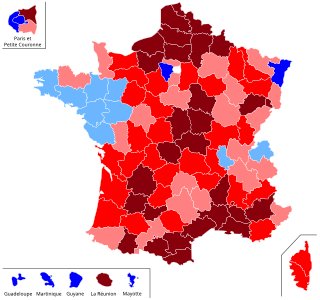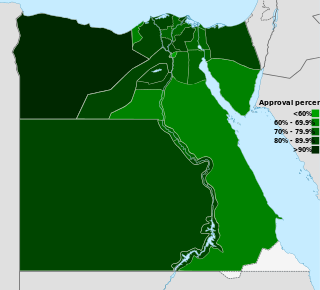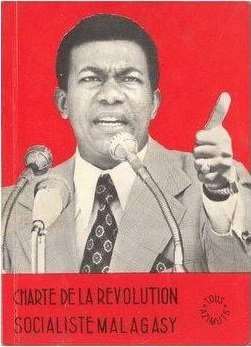
Politics of Madagascar takes place in a framework of a semi-presidential representative democratic republic, with a pluralist multi-party system. The President of Madagascar is head of state and the Prime Minister of Madagascar is head of government. Executive power is exercised by the government. Legislative power is vested in both the government and the bicameral parliament, which is composed of the Senate and the National Assembly. The Judiciary is independent of the executive and the legislature.

Marc Ravalomanana is a Malagasy politician who served as the sixth President of Madagascar from 2002 to 2009. Born into a farming Merina family in Imerinkasinina, near the capital city of Antananarivo, Ravalomanana first rose to prominence as the founder and CEO of the vast dairy conglomerate TIKO, later launching successful wholesaler MAGRO and several additional companies.

Madagascar was once divided into six autonomous provinces :

Albert Zafy was a Malagasy politician and educator who served as the fourth President of Madagascar from 1993 to 1996. In 1988, he founded the National Union for Democracy and Development (UNDD).

Didier Ignace Ratsiraka was a Malagasy politician and naval officer who was the third President of Madagascar from 1975 to 1993 and the fifth from 1997 to 2002. At the time of his death, he was the longest-serving President of Madagascar.

Elections in Venezuela are held at a national level for the President of Venezuela as head of state and head of government, and for a unicameral legislature. The President of Venezuela is elected for a six-year term by direct election plurality voting, and is eligible for re-election. The National Assembly (Asamblea Nacional) has 165 members (diputados), elected for five-year terms using a mixed-member majoritarian representation system. Elections also take place at state level and local level.

Elections in Portugal are free, fair, and regularly held, in accordance with election law.

The French referendum on the Treaty establishing a Constitution for Europe was held on 29 May 2005 to decide whether France should ratify the proposed Constitution of the European Union. The result was a victory for the "No" campaign, with 55% of voters rejecting the treaty on a turnout of 69%.

The present Constitution of Portugal was adopted in 1976 after the Carnation Revolution. It was preceded by a number of constitutions including the first one created in 1822, 1826, 1838, 1911, and 1933.

The Malagasy Revolutionary Party, better known by its Malagasy acronym AREMA, is a political party in Madagascar. It was the ruling party of the Democratic Republic of Madagascar, a Marxist–Leninist one-party socialist state, from 1976 to 1992 under the name Vanguard of the Malagasy Revolution.

The Malagasy Republic was a state situated in Southeast Africa. It was established in 1958 as an autonomous republic within the newly created French Community, became fully independent in 1960, and existed until the proclamation of the Democratic Republic of Madagascar in 1975.

A constitutional referendum was held in Madagascar on 4 April 2007. The proposed changes, which voters were asked to approve or reject as a whole, included:

The current Constitution of Madagascar was, according to the national electoral commission, endorsed by a majority of voters in the constitutional referendum held on 14 November 2010. The new constitution launched the Fourth Republic of Madagascar and was widely seen as an attempt to consolidate and legitimise the rule of Andry Rajoelina and his High Transitional Authority government which was installed after a military-backed coup d'état against President Marc Ravalomanana at the beginning of the ongoing national political crisis. One substantive change from the constitution of the Third Republic was to lower the minimum age for presidential candidates from 40 to 35. This made Rajoelina, aged 36 at the time, eligible to stand in presidential elections.

The Democratic Republic of Madagascar was a socialist state that existed on the island of Madagascar from 1975 to 1992.

General elections were held in Madagascar on 20 December 2013, following a first round of presidential elections on 25 October. The presidential elections in December were a runoff between Jean Louis Robinson and Hery Rajaonarimampianina, the top two candidates to emerge from the first round of voting in October. The official results of the second round were announced on 7 January 2014 with Rajaonarimampianina proclaimed the victor with nearly 54% of the vote.

A constitutional referendum was held in Egypt on 19 March 2011, following the 2011 Egyptian revolution. More than 14 million (77%) were in favour, while around 4 million (23%) opposed the changes; 41% of 45 million eligible voters turned out to vote.

The Third Republic of Madagascar (officially called the Republic of Madagascar refers to the 18-year-long period in Malagasy history after the dissolution of the socialist regime in 1992.

A constitutional referendum was held in Egypt on 14 and 15 January 2014 and with Egyptians abroad voting between 8 and 12 January. The new constitution was approved by 98.1% of voters. Turnout was 38.6%.

The Charter of the Malagasy Socialist Revolution was the guiding document of the Democratic Republic of Madagascar, established by the "Red Admiral" Didier Ratsiraka, President of Madagascar and head of the Supreme Revolutionary Council from 1975 to 1993. The Charter was commonly known as the Red Book or the Little Red Book due to the colour of the standard issue's cover (and in possible reference to the Quotations from Chairman Mao Tse-tung, known popularly as Mao's Little Red Book).
The 1990–1992 movement in Madagascar was a strike movement and popular uprising that rocked Madagascar demanding free results of elections, new constitution and shared their dissatisfaction with the government in Madagascar which led to elections and the fall of the government in 1990–1992.












